How to keep mosquitoes away from your pool – 6 tips to keep the bugs at bay
Don't let these pests spoil a relaxing outdoor swim

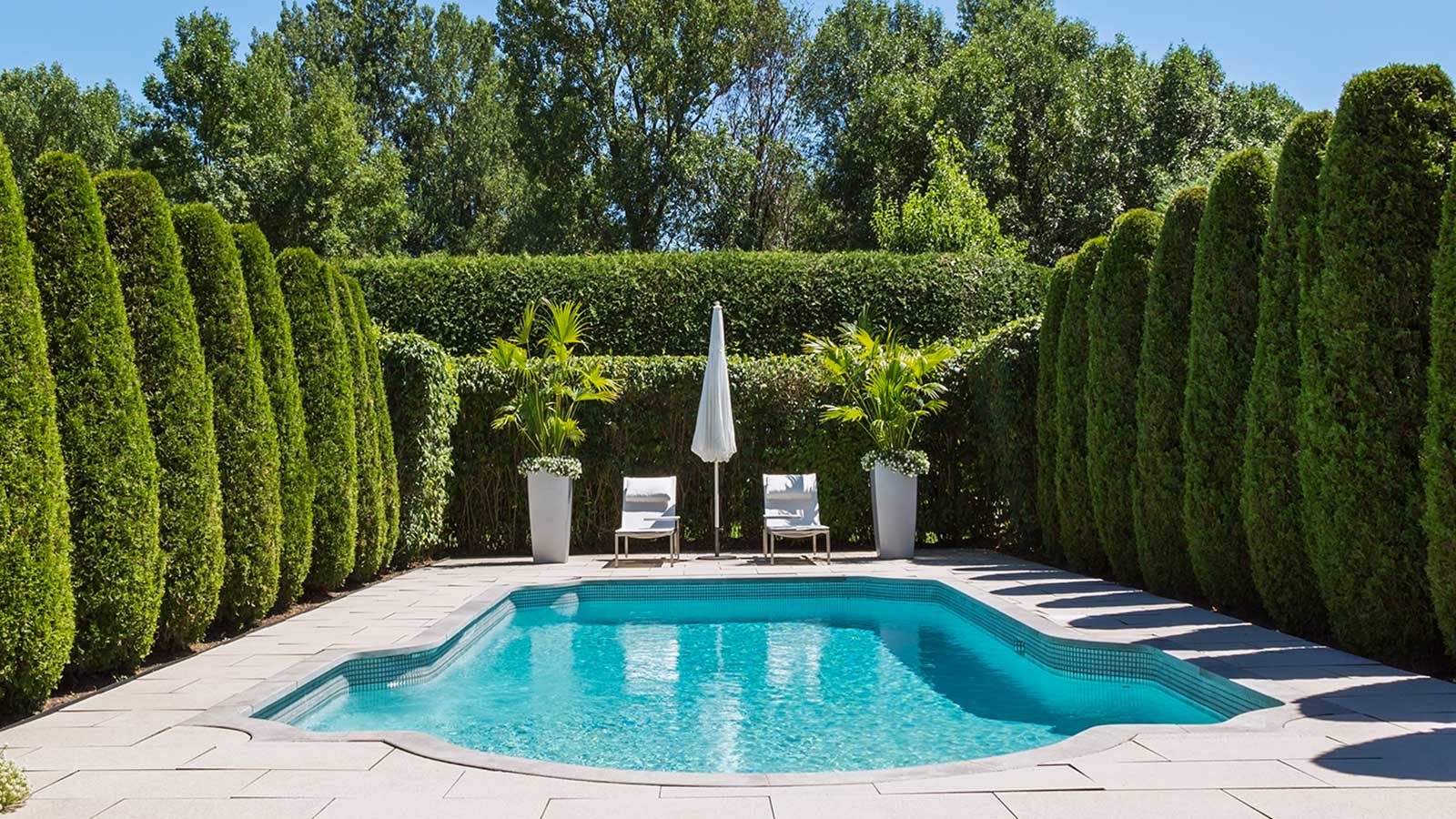
Design expertise in your inbox – from inspiring decorating ideas and beautiful celebrity homes to practical gardening advice and shopping round-ups.
You are now subscribed
Your newsletter sign-up was successful
Want to add more newsletters?

Twice a week
Homes&Gardens
The ultimate interior design resource from the world's leading experts - discover inspiring decorating ideas, color scheming know-how, garden inspiration and shopping expertise.

Once a week
In The Loop from Next In Design
Members of the Next in Design Circle will receive In the Loop, our weekly email filled with trade news, names to know and spotlight moments. Together we’re building a brighter design future.

Twice a week
Cucina
Whether you’re passionate about hosting exquisite dinners, experimenting with culinary trends, or perfecting your kitchen's design with timeless elegance and innovative functionality, this newsletter is here to inspire
Taking a dip in your pool during the warmer months should be a relaxing way to cool off. But if mosquitoes are lurking, the experience can quickly be spoilt.
Everyone wants to avoid those itchy, red bites – not only are they annoying, but they can also be dangerous in regions where these bugs are known to spread diseases. In swimwear, you're more exposed to these pests, so it's important to take preventative measures to deter them from your backyard pool.
6 mosquito-repelling methods to try
Try these expert-approved mosquito-prevention tips and enjoy a more enjoyable swim.
1. Reduce stagnant water sources around your plot
To prevent mosquito larvae in pool water, it’s important to maintain your pool, says Alicia Toedter of Leslie's, a leading pool-care supplies company. 'Mosquitoes won’t breed in balanced, circulating, filtered water, and sanitizers will kill off the microorganisms that mosquito larvae need to survive.'
But, while well-maintained pools won't attract mosquitoes, stagnant water elsewhere in your plot can be to blame. Potential sources include birdbaths, gutters, and other items you may have around your backyard, Alicia says. So, try to eliminate these where possible, and replace the water in bird baths often.
Remember to keep water features and ponds clean, too. You could also apply a mosquito dunk, available from Amazon, to the water as an extra preventative measure. This is a biological mosquito-control solution, and highly effective when used in non-chlorinated water sources, says pest-control expert Bill Swank.
Julia Ivanova of Discount Salt Pool also recommends draining your pool cover at least once a week and after rainfall. Consider your pool toys, too. 'Lay them out in the sun to dry after use, and it's best to store them indoors until you need them to help prevent water from accumulating,' Julia says.
Design expertise in your inbox – from inspiring decorating ideas and beautiful celebrity homes to practical gardening advice and shopping round-ups.

Alicia is the Education and Content Leader at Leslie’s, the leading pool and spa care brand in the U.S. Over the past five years, Alicia has dedicated herself to pool-care education, and she has a passion for creating engaging written and video content to help homeowners learn more about safely enjoying their pools.

Bill is the founder of PestSource – a comprehensive hub for all things pest control. Not only this, but Bill is also a seasoned exterminator with over 30 years of experience in the field.
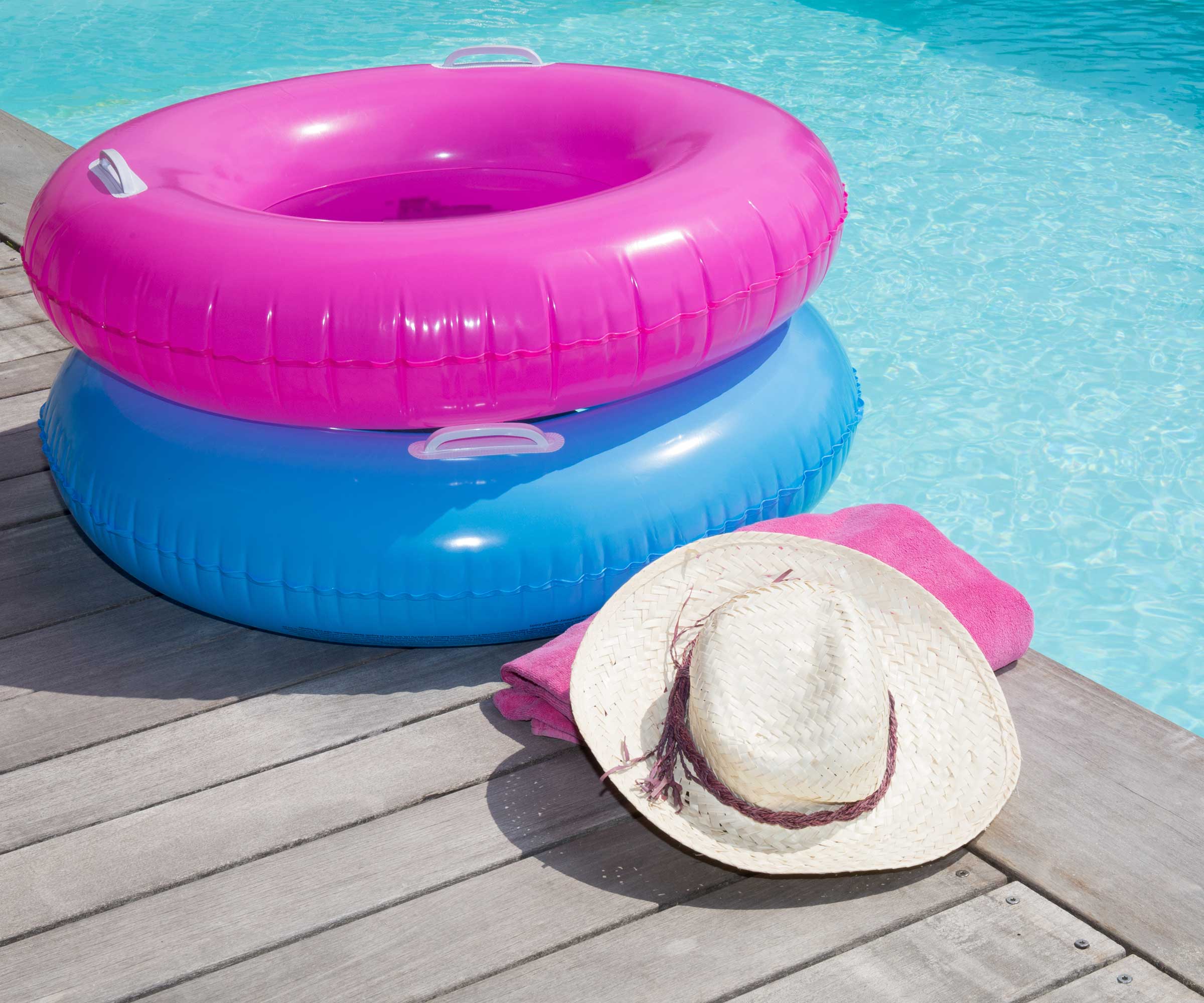
Allow pool toys to dry thoroughly after use
2. Surround your pool with mosquito-repelling plants
Another method to keep the bugs away from your backyard swimming pool is to incorporate mosquito-repelling plants around the pool area, perhaps as part of a container garden.
Travis Turgeon of PottedExotics.com recommends citronella grass. 'Citronella is the main ingredient in most mosquito-repellent candles,' he explains. 'Citronella grass is super easy to grow and requires little upkeep or maintenance – so it's perfect for almost any pool owner.'
Alternatively, he suggests citronella geranium – a perennial herb with wonderfully fragrant leaves that also contain citronella. 'It also blooms from late spring to early autumn, adding a touch of style to your pool landscaping,' he adds.
Marigolds can also be effective at keeping these pests at bay, as they contain pyrethrum. This is a primary ingredient in many commercial mosquito-repellent products, he says.
These plants, amongst others, are effective at keeping bees away from a pool, too.

Travis is the Owner and Lead Editor for PottedExotics.com – a website devoted to teaching current and future plant parents about all things that require a bit of a green thumb. He graduated from the University of Nebraska-Lincoln with a degree in Environmental Restoration Science, focusing heavily on agricultural and plant sciences as a whole. He currently lives in Thailand, where he has the opportunity to seek out all sorts of exotic plants to further his knowledge and share it with the world.
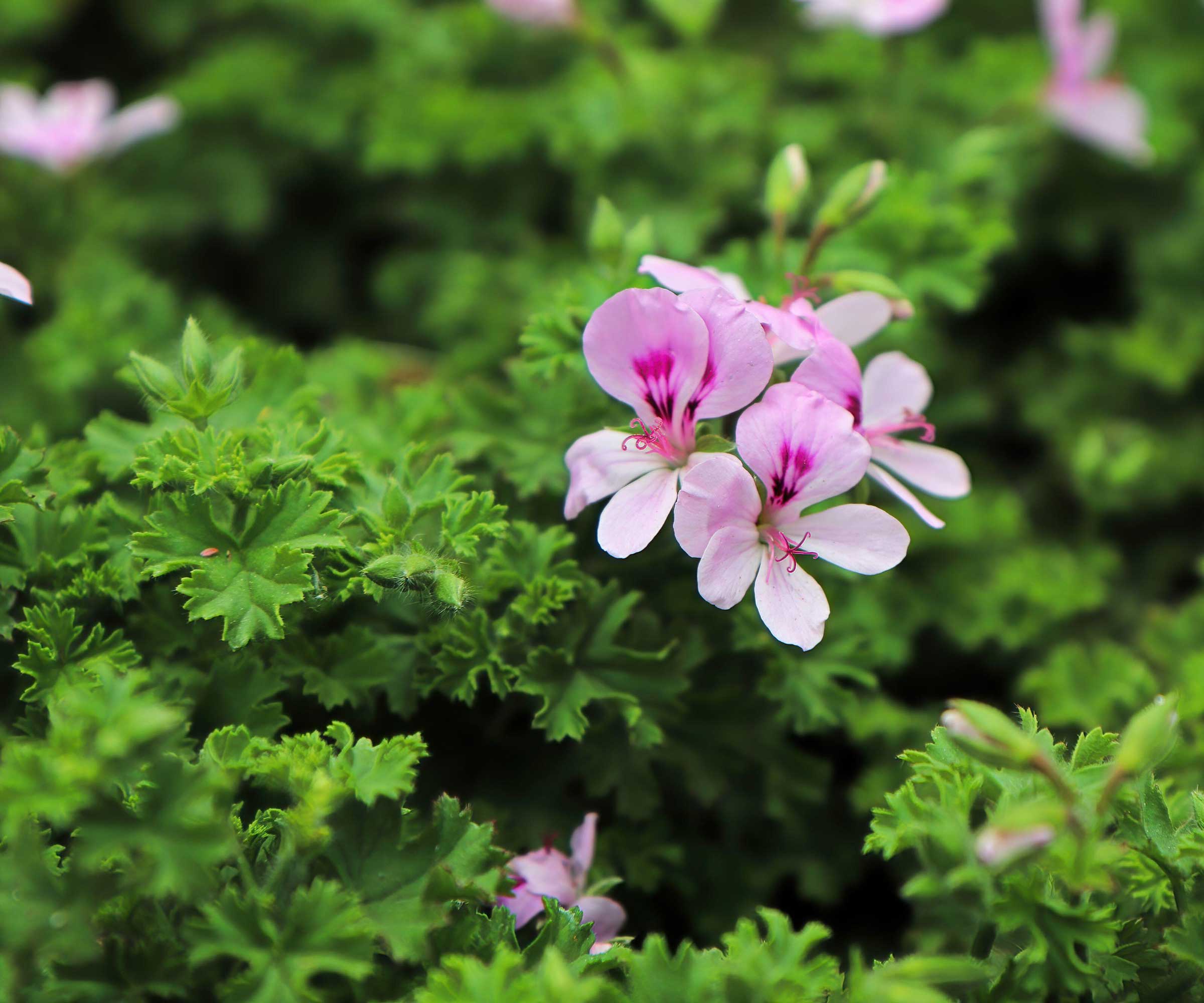
Citronella geraniums have pretty pink blooms
3. Light a mosquito-deterring candle nearby
As an extra precaution, or if you already have plenty of plants around your pool, try lighting a citronella candle or two on your pool patio. 'Just be sure that these are placed in a safe location, out of reach of children and pets,' says Alicia.
This cement trough candle from Terrain is the perfect centerpiece for a poolside dining table for upping the ambiance.
You can also burn specially-formulated incense, such as these Madison James Flyaway Sticks, also from Terrain, that are scented with Texas cedar, geranium, and clove.
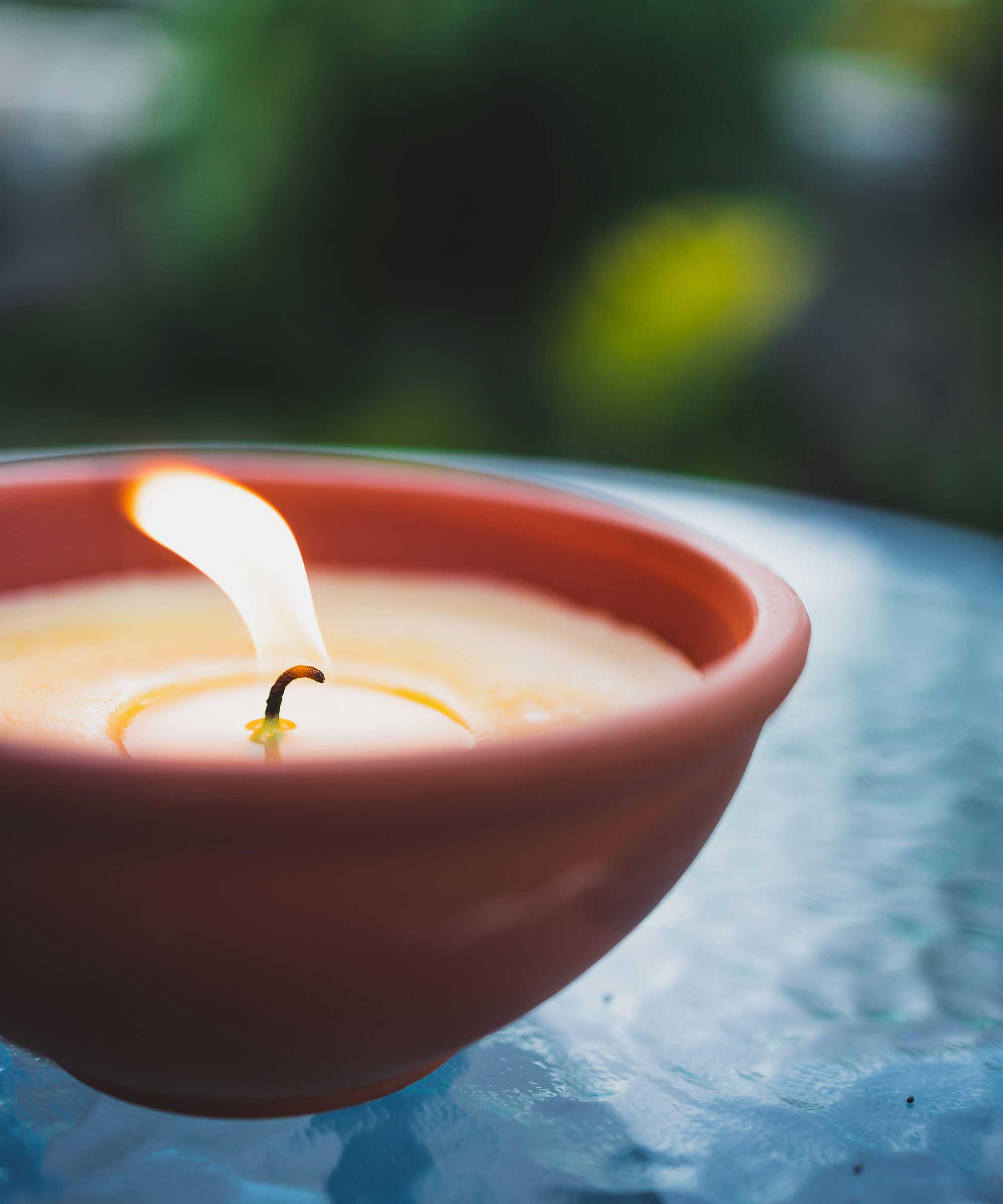
Up the sense of romance while keeping bugs away with a citronella candle
4. Enclose your pool
Physical barriers like pool enclosures or mosquito nets can also be installed around the pool area to prevent mosquito entry, suggests Vincent Luca, the Owner of On Demand Pest Control. It's a good solution for regions with more severe mosquito problems – plus, it will help to keep fallen leaves and other debris out, making pool maintenance easier.
Depending on the type of enclosure, they can be great at increasing the level of privacy for your pool, too. What's more, some designs can offer protection from the elements, meaning you can enjoy a swim whatever the weather.
'Using fans and misters can also help deter mosquitoes from your poolside patio,' Alicia adds – and they'll keep you cool in the meantime.
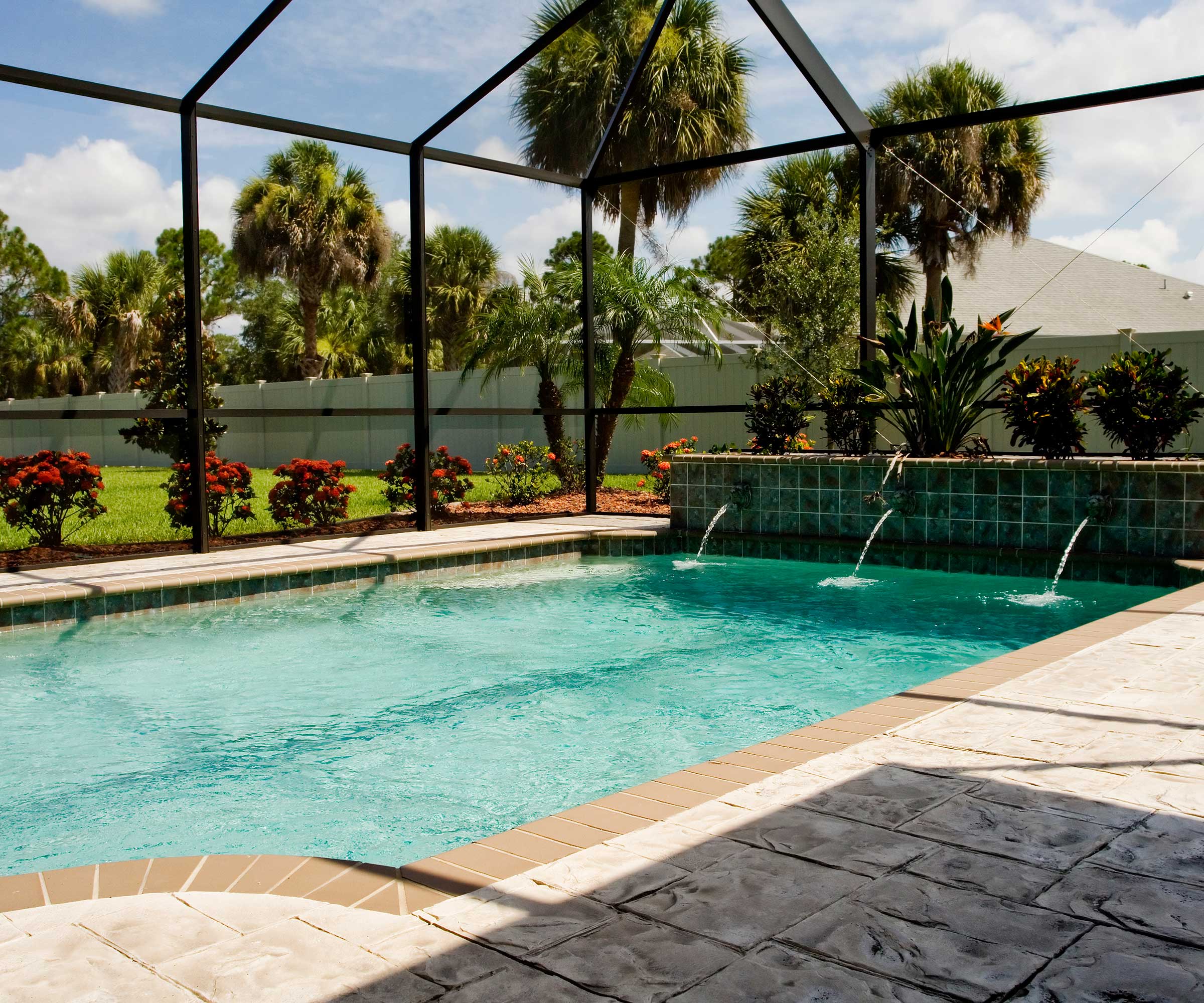
A pool enclosure has multiple benefits
5. Install mosquito traps on your pool patio
'Mosquito traps that use UV light, CO2, or other mosquito attractants can also be placed strategically around the pool area to reduce mosquito numbers,' says Vincent. For example, the Endbug Bug Zapper from Amazon is well-rated, and can be hung on your pool patio.
However, this isn't the best approach for wildlife-friendly gardens. As Bill Swank points out, while they might give a certain satisfaction, studies have shown that they often kill more beneficial insects than mosquitoes.
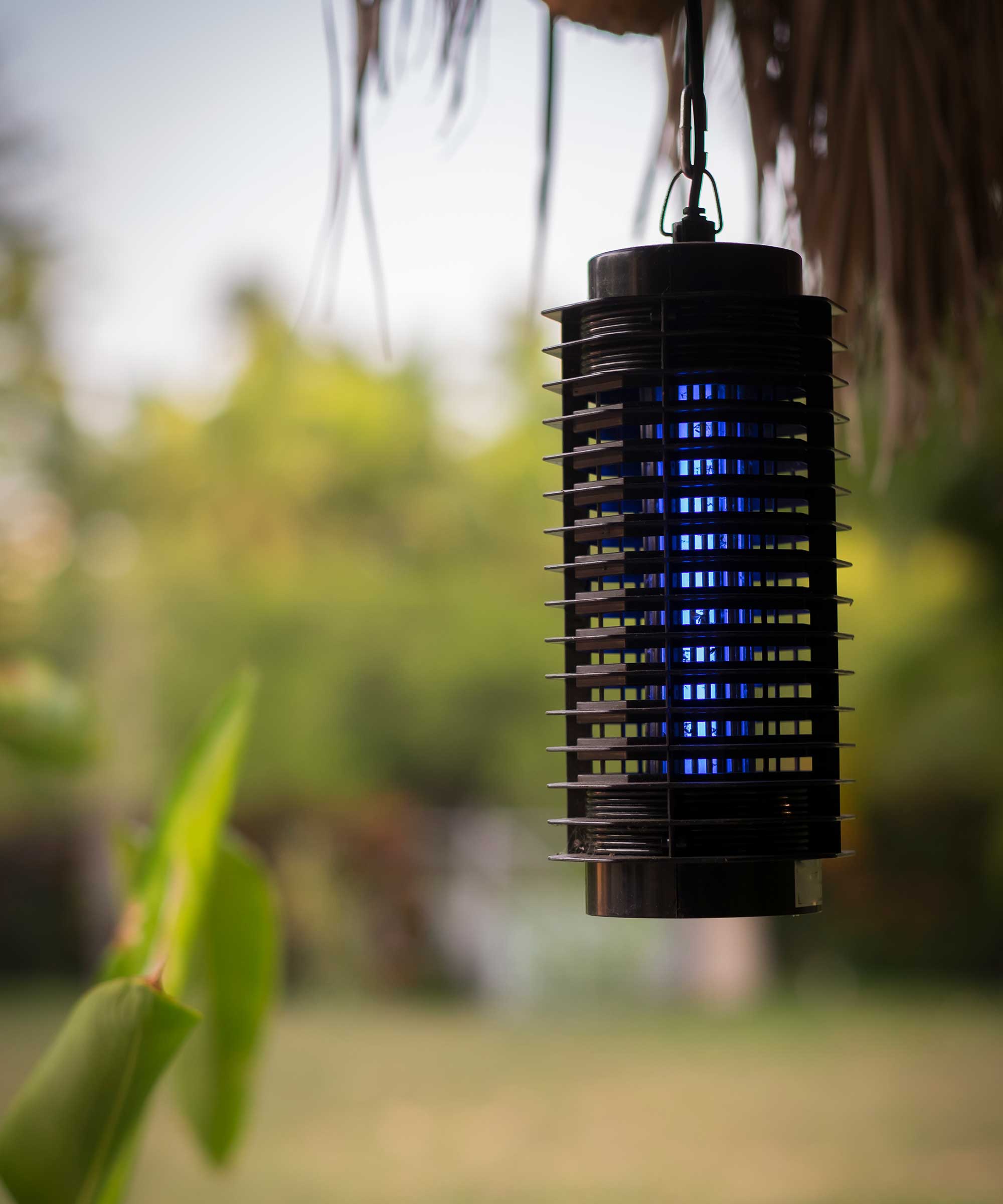
Mosquito traps can be effective, but they can also kill non-target insects
6. Apply a mosquito repellent when lounging by your pool
Mosquito repellent can be used to protect yourself. 'There are special formulations that are waterproof and can be applied before taking a dip,' advises Alicia.
'There are also natural repellent products and home solutions that can be made of lemon or eucalyptus oils,' she continues. 'However, when swimming, these must be reapplied often to maintain their effectiveness.'
Alternatively, there are scented bands that you can wear on your wrist, such as these BuggyBands Mosquito Bracelets from Amazon, which are waterproof.
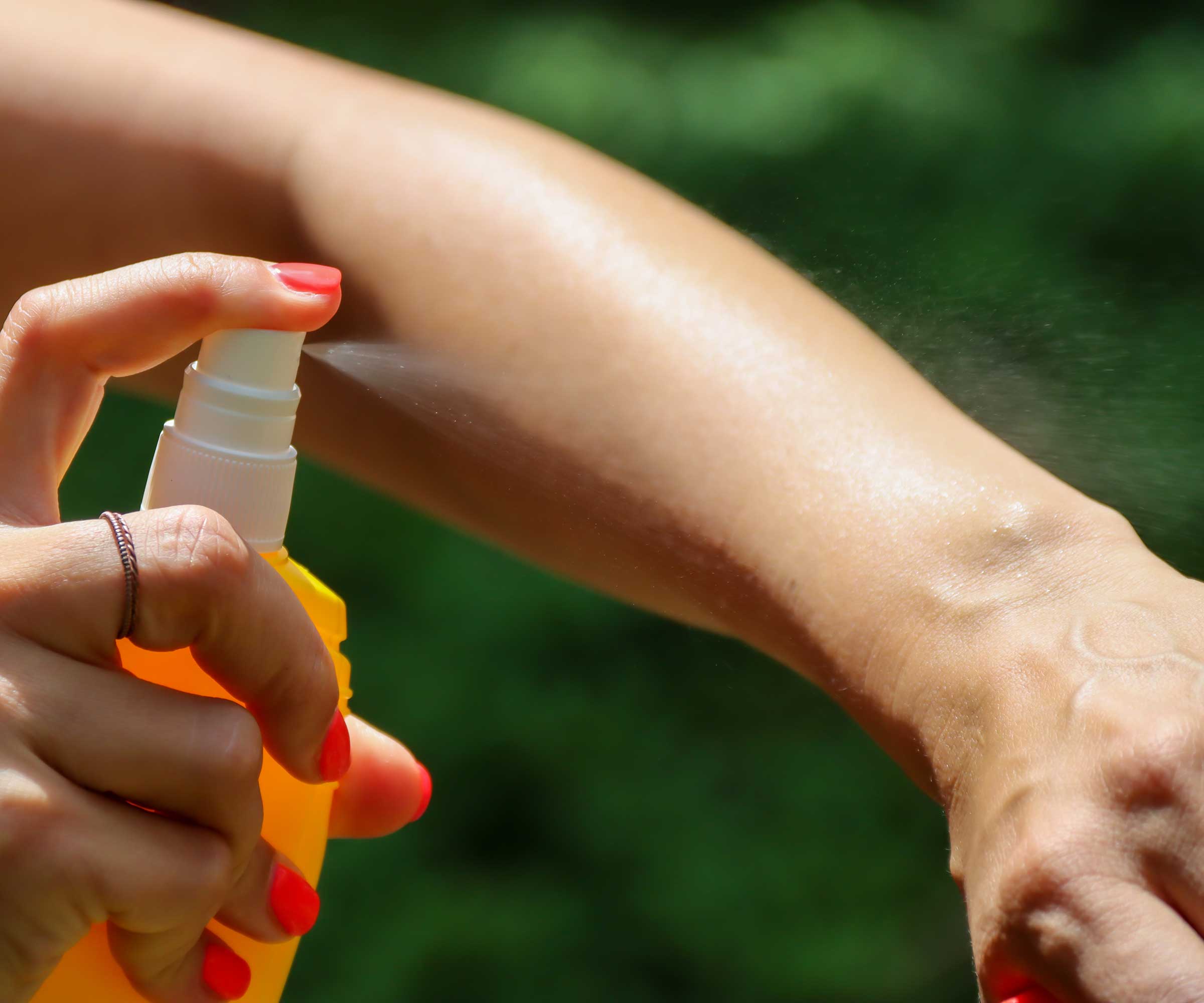
Protect yourself with a mosquito-deterring spray
Keeping mosquitoes away will make your pool a safer and more enjoyable place to spend time in. But if you do get bitten by one of these bugs, these 'Don't Scratch That' patches from Terrain, infused with tea tree oil, should help provide relief.
And remember, as well as ways to keep biting insects away, there are other pool safety tips to bear in mind for backyard pools – whatever their size.

Holly started writing about gardening five years ago, and she is a regular contributor to Homes & Gardens. She has also written many gardening features for Woman & Home and Real Homes, too. She has previous experience as a professional gardener, where she helped to plant and maintain private gardens. Holly has also looked after allotment plots over the years and loves to grow her own flowers and veggies from seed. In her spare time, she enjoys visiting local gardens, botanical drawing, and tending to her ever-growing collection of houseplants.